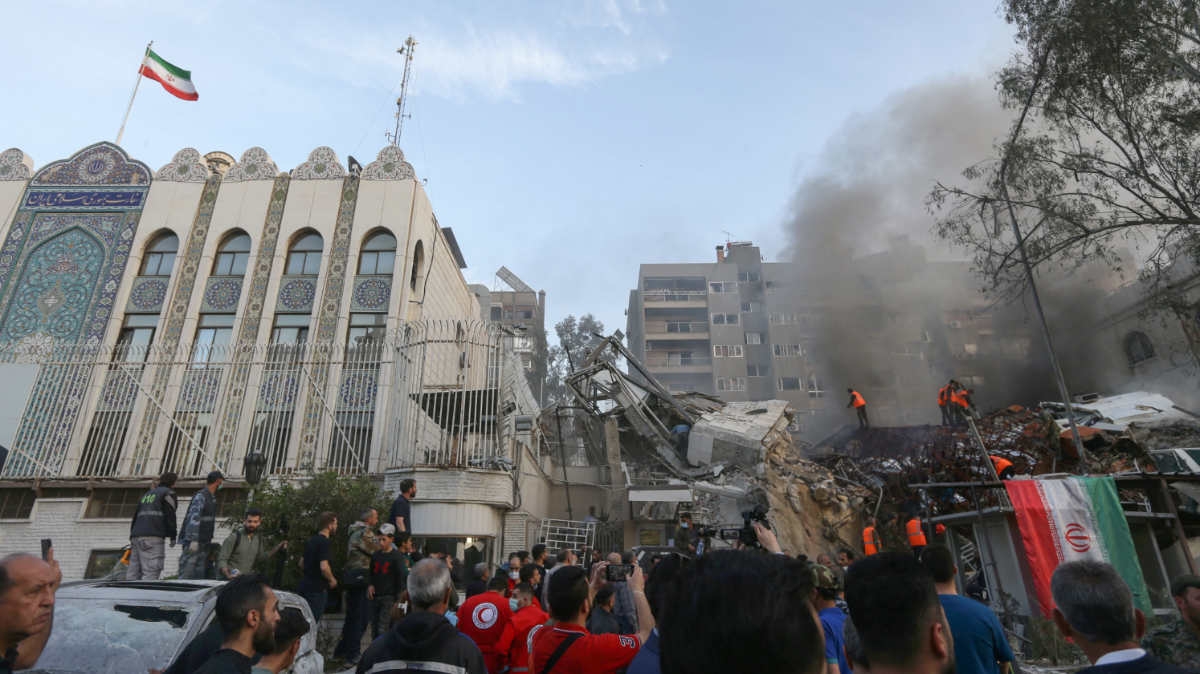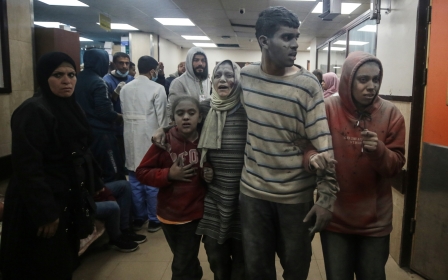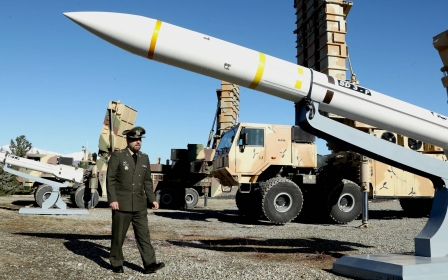Iran says Israel behind deadly strikes on its consulate in Damascus

Iran has vowed a “decisive response” to an air strike on its embassy's consular annex in Syria on Monday that killed at least five people, including a Revolutionary Guard Corps commander.
The unprecedented strike has been attributed to Israel - which never publicly claims strikes - and would mark a major escalation in Israel’s campaign against Iran. Consulates and embassies are considered sovereign territories of the countries they represent.
At least five people were killed when six missiles fired from F-35 fighter jets slammed into the annex, Iran said, referring to the US-made aircraft.
A State Department spokesperson told reporters they had no specific comment when asked about the strike and who was responsible.
Footage on social media showed smoke billowing from the leafy, upscale neighbourhood of Mezzeh where the consulate is located. Other images showed a building collapsed into rubble. Reuters reported that the Syrian interior and foreign ministers were both seen at the site.
New MEE newsletter: Jerusalem Dispatch
Sign up to get the latest insights and analysis on Israel-Palestine, alongside Turkey Unpacked and other MEE newsletters
Iranian state TV said among those killed was a senior commander of the Islamic Revolutionary Guard Corps' foreign operations arm, the Quds Force, Brigadier General Mohammad Reza Zahedi. Zahedi was a senior officer responsible for the Quds Force's overseas operations. He previously commanded Iran’s forces in Lebanon and Syria.
His deputy, Mohammad-Hadi Haji-Rahimi, was also killed, along with Hossein Aminollah, chief of staff of the Quds Forces in Syria and Lebanon. The killings were confirmed by Iranian state media.
Britain-based war monitoring group, the Syrian Observatory for Human Rights, also said it had "confirmed the killing of a high-ranking leader who served as the leader of the Quds Force for Syria and Lebanon, two Iranian advisors, and five members of the Iranian Revolutionary Guard”.
Syria’s defence ministry said "the attack destroyed the entire building, killing and injuring everyone inside, and work is underway to recover the bodies and rescue the wounded from under the rubble”.
Iranian Foreign Minister Hossein Amir-Abdollahian blamed “the Zionist regime”, a reference to Israel, in a call with his Syrian counterpart, Faisal Mekdad, as he called on the international community to condemn Israel.
"Netanyahu has completely lost his mental balance due to the consecutive failures of the Israeli regime in Gaza and not achieving the ambitious goals of the Zionists," Iran's top diplomat added, referring to Israeli Prime Minister Benjamin Netanyahu, whose country has been at war with Iran-backed Hamas militants in the Gaza Strip for almost six months.
Israel did not immediately comment on the deadly attack in Damascus.
Israel has escalated its air campaign against Iran since the Hamas-led 7 October attacks on southern Israel and its invasion of Gaza. It has targeted Hezbollah in Lebanon and Iran-backed groups in Syria.
But Monday’s strike marks a serious escalation, risking direct confrontation between Israel and Iran that could draw in the US. Having directly blamed Israel for the attack which reduced its consulate to rubble, Iran will be pressured to respond.
Iran's foreign ministry spokesperson Nasser Kanaani said on Monday that it reserves the right to take reciprocal actions against Israel.
Tehran has said it will decide on "the type of response and punishment against the aggressor".
Direct confrontation between the Islamic Republic and Israel could draw in the US at a time when it has tried to reduce tensions from the war in Gaza from spreading beyond Israel's borders.
Middle East Eye delivers independent and unrivalled coverage and analysis of the Middle East, North Africa and beyond. To learn more about republishing this content and the associated fees, please fill out this form. More about MEE can be found here.




